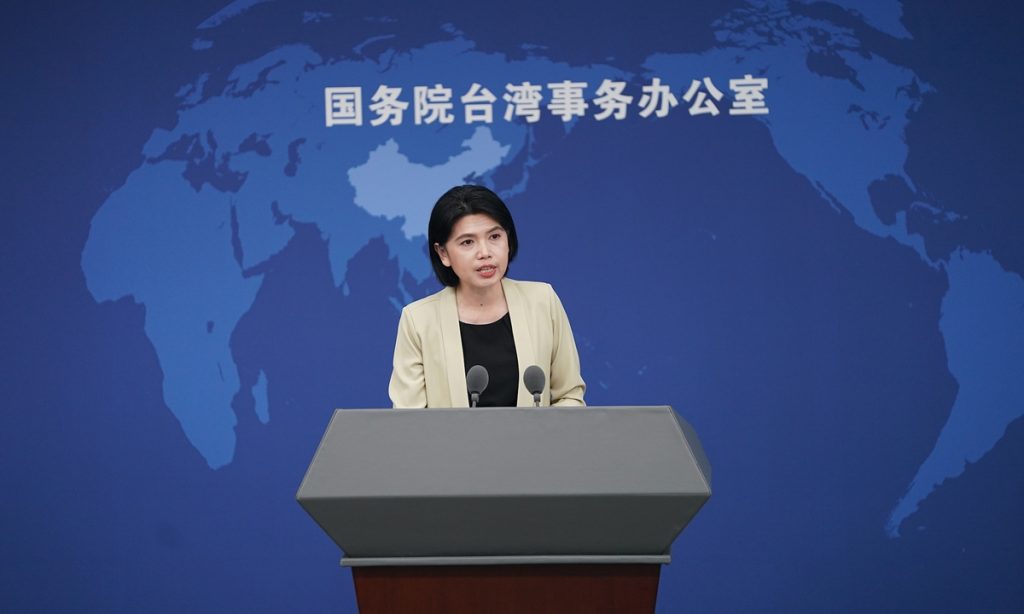Lai Ching-te's falling ratings reflect provocation will ultimately be rejected by Taiwan public: mainland spokesperson

Taiwan regional leader Lai Ching-te's pursuit of "independence" and provocative actions counter to the interests and well-being of the people in Taiwan and will ultimately be rejected by the public, Zhu Fenglian, spokesperson for the Taiwan Affairs Office of the State Council, said at a press conference on Wednesday, warning that his "pro-independence provocations" are the root cause of cross-Straits tensions and instability.
Zhu made the remarks in response to a latest poll, which showed that Lai's approval rating has dropped to 47.1 percent, 10 percentage points lower than results from the last poll, falling below his disapproval rating for the first time since taking office. Zhu said this sharp decline reflects growing public dissatisfaction with Lai's policies.
"The people have a clear sense of judgment. What they want is economic development, social stability, and peace across the Taiwan Straits. But Lai continues to stir up political strife, suppress opponents, provoke cross-Straits confrontation, hollowing out Taiwan's key industries, and selling out Taiwan's interests to incite conflict," Zhu said. His actions will only lead to stronger opposition and, eventually, rejection by the public, she added.
In response to another question about Lai's recent remarks reiterating the "two-state theory" and claiming he is open to cooperation with the mainland "on the basis of dignity and parity," Zhu strongly condemned his comments as a blatant "pro-independence provocation." She labeled him a "troublemaker undermining cross-Straits peace and a creator of crisis in the Taiwan Straits."
"There is only one China, and Taiwan is an inalienable part of China's territory. No matter what Lai says or does, he cannot change this historical and legal fact," the spokesperson emphasized.
Zhu noted that the root cause of current cross-Straits tensions is the island's Democratic Progressive Party (DPP) authorities' refusal to acknowledge the 1992 Consensus, which forms the political foundation for dialogue and consultation between the two sides of the Straits. Instead, they have colluded with external forces to push for "Taiwan independence."
Zhu reiterated that as long as both sides uphold the 1992 Consensus and the one-China principle, dialogue can be conducted across the Straits. But if the DPP continues to reject this foundation and pursue separatist goals under the banner of "dignity and parity," cross-Straits talks will be impossible. "Any attempt to promote exchanges based on the 'two-state theory' is doomed to fail," she warned.